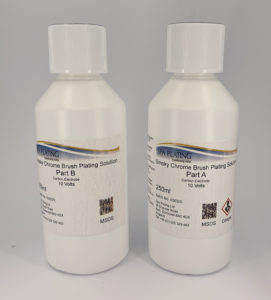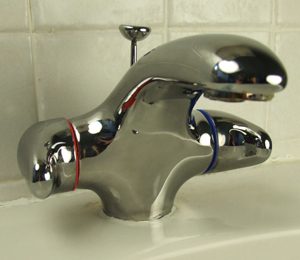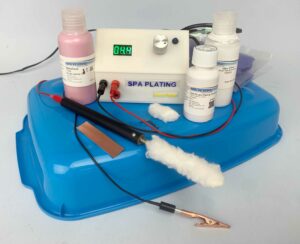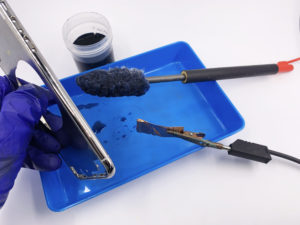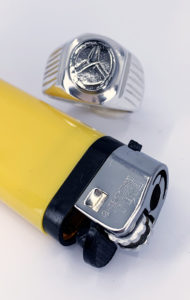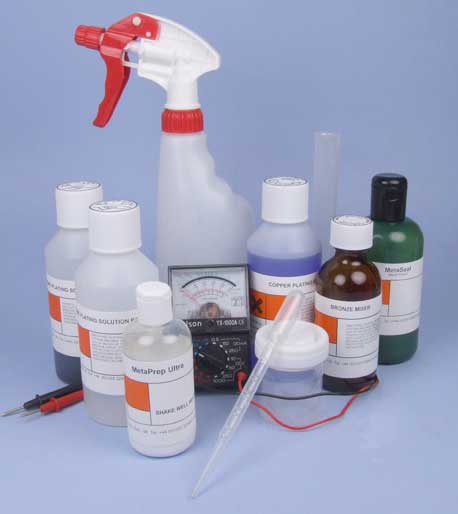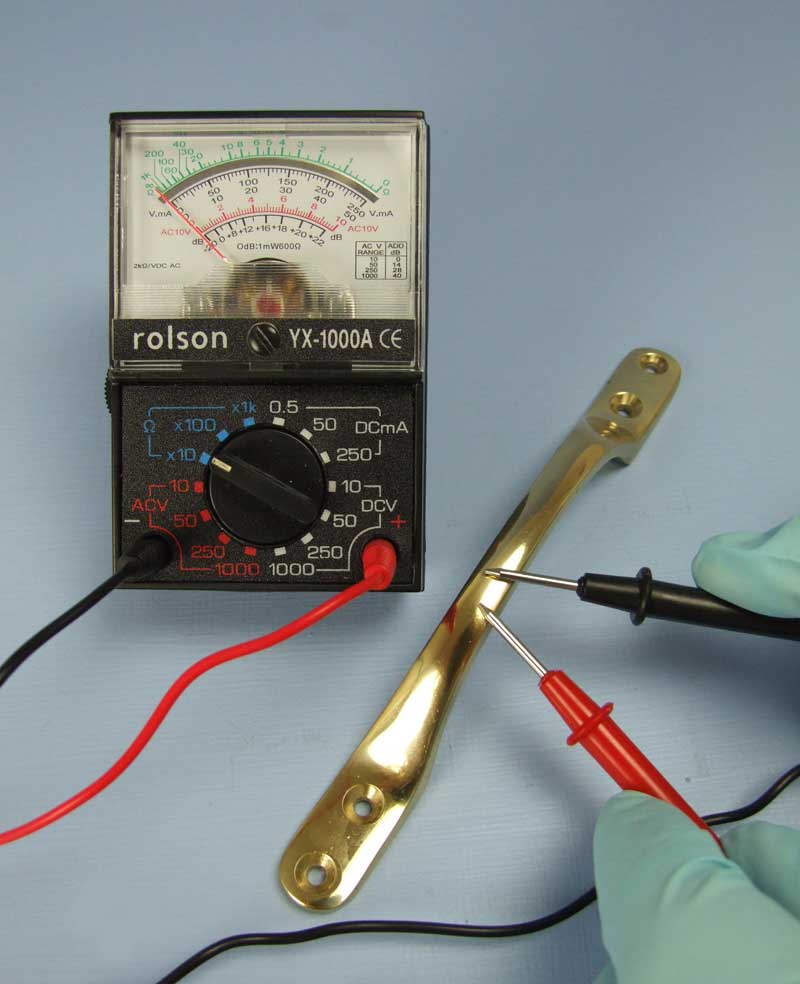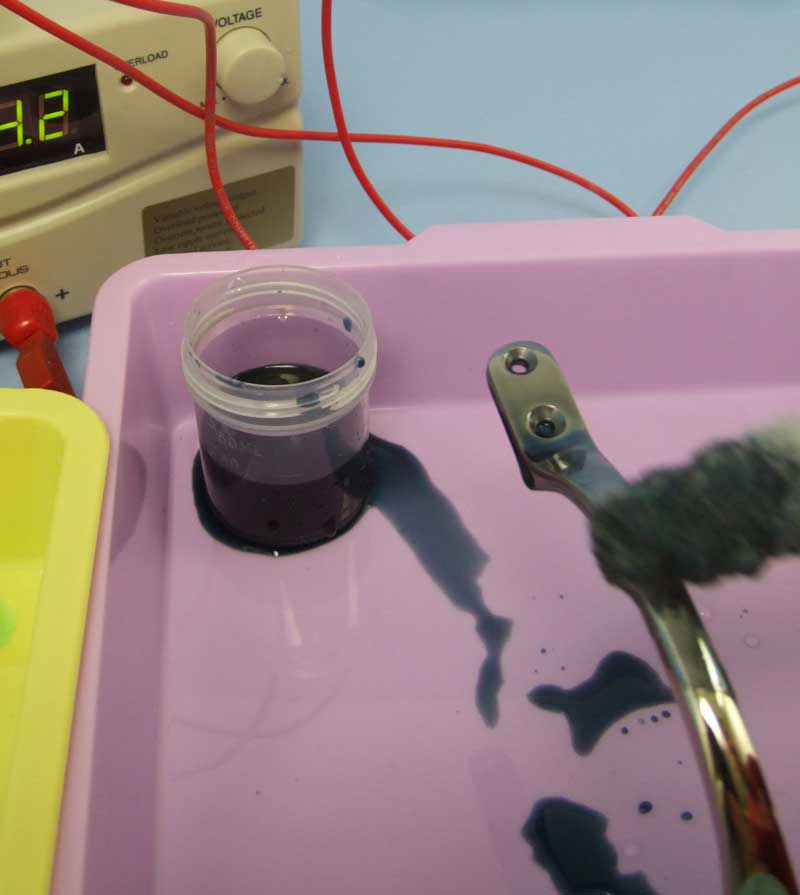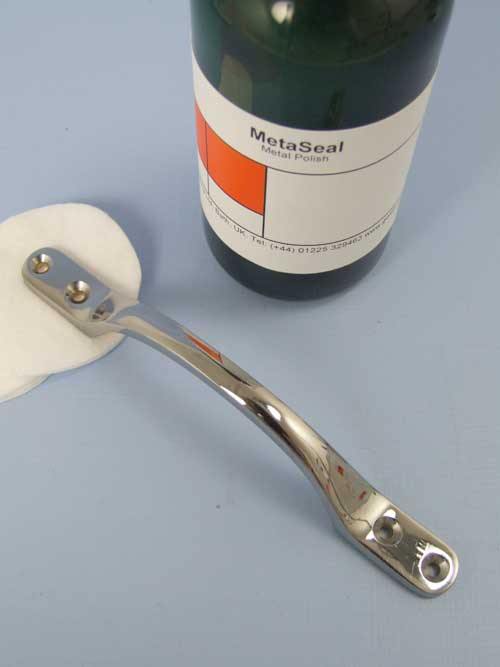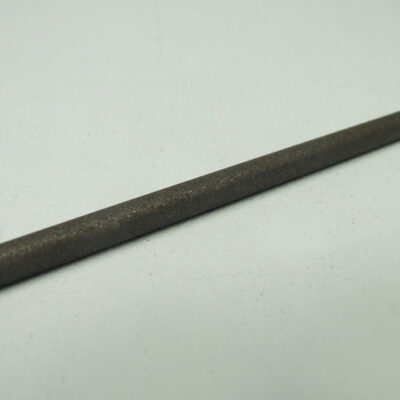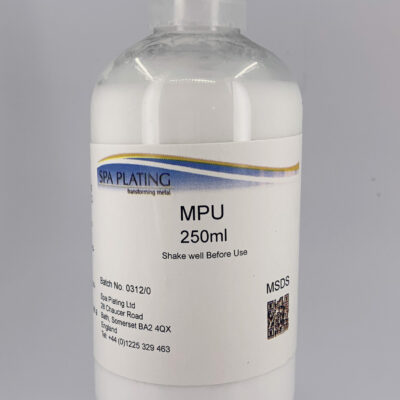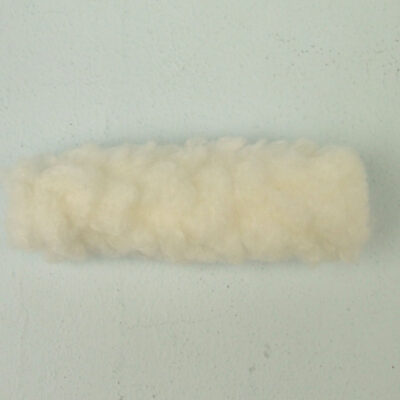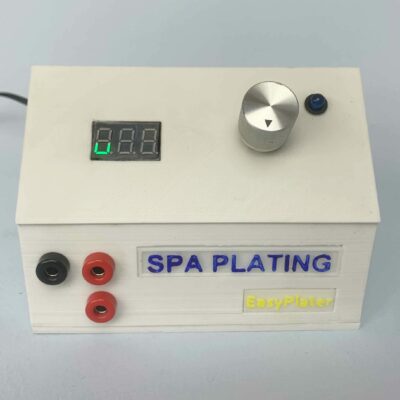Our Smoky Chrome Brush Plating Solution is a sophisticated choice for bathroom fixtures, jewellery and other items. Recommended electrode – Carbon. Once you have mixed your solution, you’ll need to allow it to stand (preferably overnight) at room temperature prior to use.
As well as the visually appealing qualities of the plate, it’s a very hard, scratch-resistant coating that doesn’t tarnish and is fingermark-resistant.
When using this product, we recommend the operator conducts the plating operation wearing a respirator fitted with appropriate filters or extracts the fumes with a ventilator hood.
Please click on the Tech Specs tab for further information concerning recommended health and safety procedures.
Because this is a two part system, you’ll need to mix it 50/50 before use. Leave it to stand for at least three hours before use and preferably, overnight.
HS Code: 3824 99 70
| Features |
Used for |
| Innovative two part mixing system |
Ensuring long shelf life and mixing only the amount of solution you need, thus saving money |
| Fingermark resistant finish |
Plating personal items such as watches key fobs and other items |
Technical Tips;
Plate at 10 volts
Temperature: 20 – 25 centigrade
Electrode – Carbon or platinum
For optimum results, we recommend warming the work piece to 30 centigrade by immersion
in warm water just before plating.
This project guides you through the process of black chrome plating on brass.
In order to plate black chrome successfully onto brass, it’s necessary to first plate a layer of nickel or white bronze.
Please refer to the Tech Specs tab on the smoky chrome product page for ideal temperature.
This project also demonstrates how useful the conductivity tester can be in saving you time before you start plating.
Please note: The Rectifier shown in this project has now been discontinued and replaced by the MF Rectifier Mk II.
At the foot of the page you'll find a troubleshooting section.
2. Using the Conductivity Tester
Before you start, check that the surface you’re plating is conductive. This is particularly important if the object you’re plating is a decorative item that is designed to be handled regularly, as these items are often coated with a protective layer of lacquer to prevent tarnishing. This layer will stop any plating taking place and will be detected by the conductivity tester. If this is the case and your item is coated with lacquer, proceed to the next step. If not and the needle on your tester shows the surface to be conductive, go straight to the fourth stage.
3. Stripping off any lacquer
Strip the lacquer off with the same kind of preparation you would use to strip household paint from doors or varnish from floors. We suggest that you do this twice, to be absolutely sure that you’ve removed all traces of lacquer. Clean thoroughly with MPU and then test again with the Conductivity Tester, before you start plating.
4. White bronze plating
Remember to fit a platinum or carbon electrode into your electrode handle, using the allen key supplied with the electrode handle kit. Adjust the voltage if necessary and start plating with the usual circular strokes of the swab.
5. Smoky chrome plating
Adjust the voltage according to the the tech specs on the product or the label on the product bottle and start plating with regular, circular strokes.Try to make electrical contact in an area that is out of site to prevent marking of the work. Alternatively you could use one of our Conductor Strips, which can be purchased from our website.
6. Finishing
Rinse with deionised water. Dry and seal with MetaSeal.
Troubleshooting table
| Type of problem |
Possible reason |
What to do |
| No Plating taking place |
1. Voltage too low. 2.Incomplete electrical circuit 3. Surface not clean enough. 4. Surface inactive because of thin film of oxidisation especially when plating on to stainless steel. |
1. Increase voltage as per Tech Specs tab on product page. 2. Check all electrical connections and clean if necessary. Make sure the swab is fully soaked in solution. 3. Repeat cleaning cycle. 4. Rub with MPU and if plating on to stainless steel gold flash. If the piece you are plating is large (making it likely that the nickel undercoat will be exposed for a length of time), we recommend you gold flash and then smoky chrome plate to avoid this problem of oxidisation. |
| Plating is patchy or not plating at all |
1. Refer to all of the above. 2.Incomplete stripping of already present chrome layer. |
Strip the existing chrome and rub with MPU. |
| Dark streaks appearing in the plating. |
Metallic contamination, most commonly caused by iron for nickel rom using a stainless steel electrode. |
Check that the contamination isn’t caused by any other stage of the process and replace the stainless steel electrode with a carbon electrode. |
Operating Conditions and Deposit Data
| Voltage Range |
9 – 11 volts (see notes)
|
| Temperature |
20 – 30 °C |
| Lightness (L*) of deposit |
65 – 70% |
| Electrode |
Carbon or Platinum Electrode (see notes) |
| Chromium content in plate |
99% (balance carbon) |
| Plating Rate at (10 volts, Carbon Electrode) |
Approx. 2 micron per minute (spot) |
| Maximum plating thickness |
3 microns |
| Hardness (as plated) |
800 Hv (see notes) |
| Hardness after heat treatment |
1500 – 1600 Hv (see notes) |
| Density of deposit |
7.2 g/cm3 |
| Stress |
Hi stress |
| Special storage requirements |
None |
| Shelf life |
1 – 2 years |
| Health and Safety classification |
Not classified as dangerous |
| Special considerations |
None |
| Transport (UN number) |
None: Not classified as dangerous for transport |
Notes:
- Heat treating at 220 °C increases the hardness of the deposit from 800
to 1600 Hv.
- The voltage should be raised from 10 volts if using a Carbon Electrode to 11 volts when
using a Platinum Electrode.
- We strongly advise against the use of stainless steel anodes for most of our plating processes.
- Plating rates are calculated over a sample area which is permanently covered by swab.
General guide;
Certain small items, for example Swabs, Nibs and Plating Pens can be sent by normal post within the UK
- The courier option for UK deliveries is FedEx
- Free UK mainland delivery available on orders over £200
- International orders usually 3-5 working days.
For all price quotations for deliveries, please add your items to our shopping cart. You will be able to see the shipping costs by clicking on the ‘Calculate shipping’ button in the cart and before checking out.

